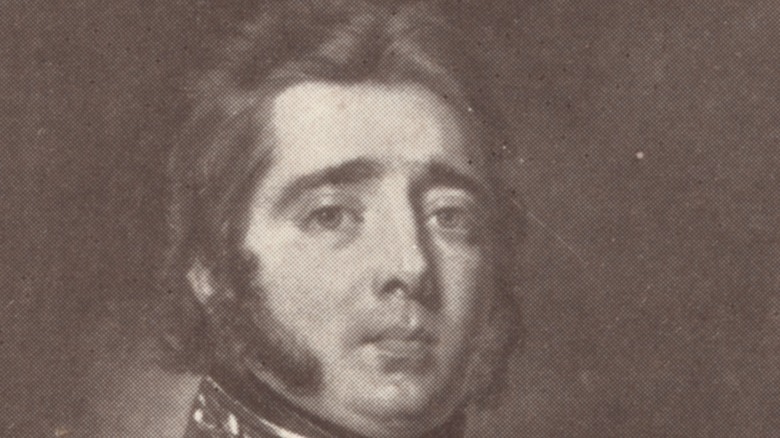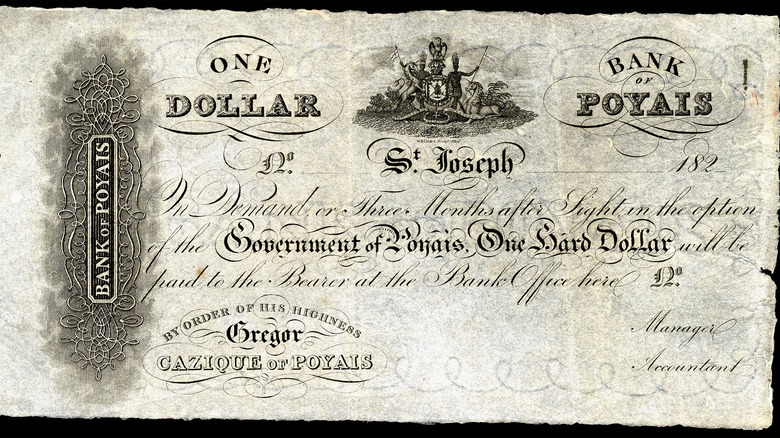How This 19th Century Con Artist Sold A Nonexistent Country
There are lots of modern methods to scam people out of money. Ponzi schemes, pyramid schemes, phishing attacks, and more see the innocent and their earnings or identities parted. Yet nothing in the world of contemporary cons can reach the scope, ambition, and sheer audacity of Gregor MacGregor. The Scottish general and revolutionary managed to convince royals that an entire nonexistent country did exist and received massive funding from prospective colonists and governors (via Historic UK).
MacGregor married rich and rose through the ranks of the British army, partly by purchasing promotions. When a spat with a superior saw him dishonorably discharged, the Scot traveled to South America after parading as a knight in London. After finding some fame and success as a revolutionary in Venezuela, MacGregor returned to London and began describing the fertile paradise of Poyais, inhabited by friendly natives who had supposedly appointed the Scot as Cazique, or chief. MacGregor was selling land certificates and other investments as enthusiastic Londoners gave up everything to travel across the Atlantic to this new land of opportunity, where the scam met its deadly end.
MacGregor had flags, illustrations, and currency for his fake country
According to the BBC, Gregor MacGregor described Poyais as teeming with fresh fruit and glittering gold, and appealed to the sense of adventure of his fellow Scots. The tropical paradise would certainly have been a welcome change of pace to rainy Scotland, and others would have been motivated by a patriotic duty to support what would be the country's first colony. He pointed his marks toward a book on the small Central American nation by a man named Thomas Strangeways, which was actually just a pseudonym for MacGregor. People from commoners who devoted their life savings to well-respected generals and members of nobility purchased bonds, land certificates, or currency from MacGregor; in today's money, the value of the bonds would register in the billions.
Some 250 passengers set off on the first ships to Poyais, eager to start a new life across the Atlantic. What awaited them was an undeveloped wasteland unfit for any kind of settlement. Two thirds of the settlers would perish before a passing ship would rescue the conned colonists. MacGregor would try the scheme again in France, briefly return to Scotland, and die in Venezuela. Meanwhile, the area of Poyais remains uninhabited to this day.

